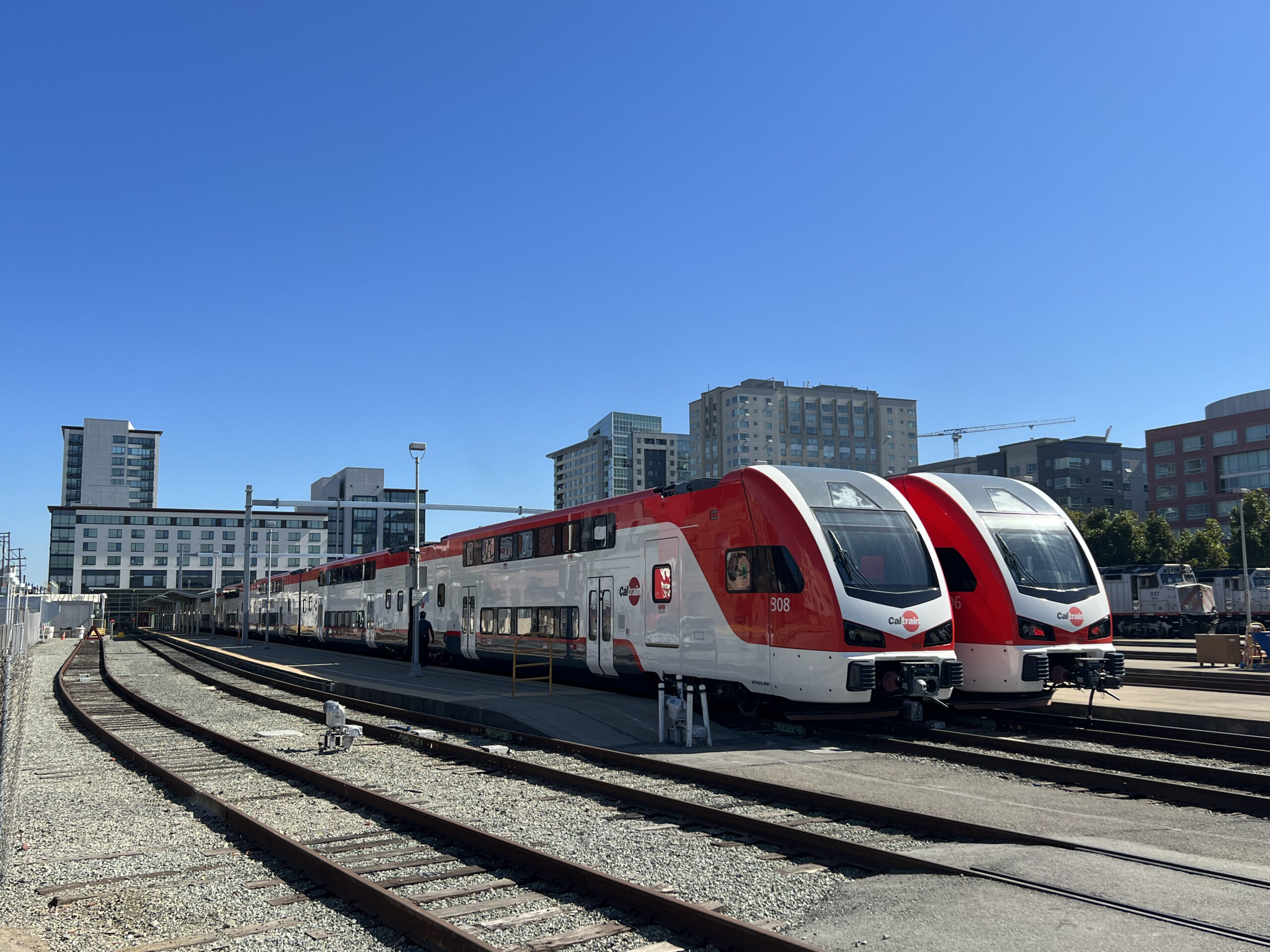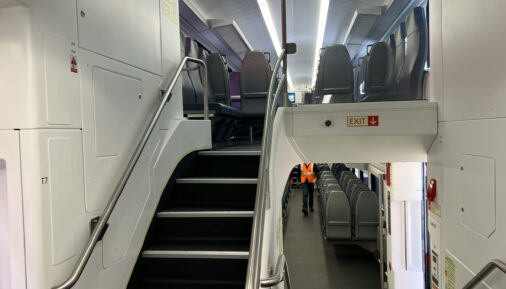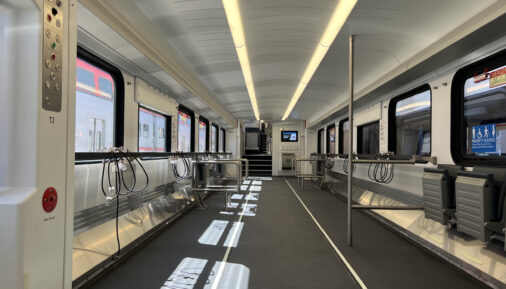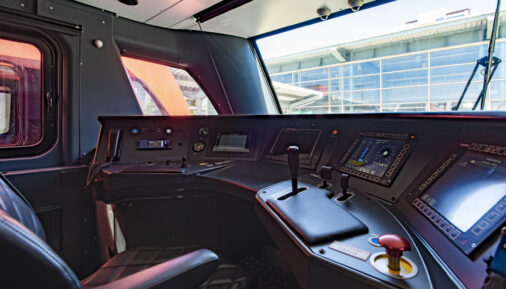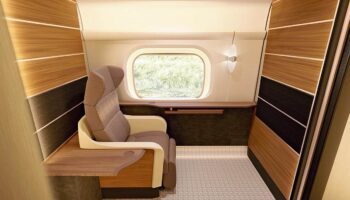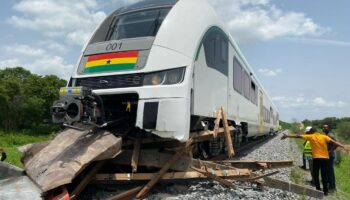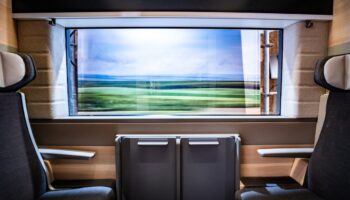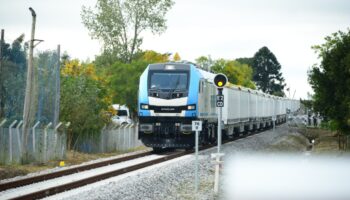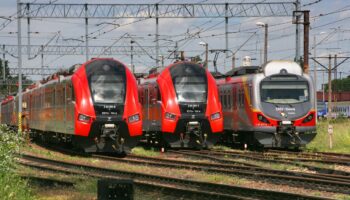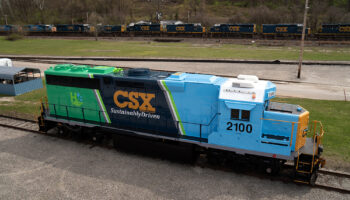USA: At the end of September, the commuter passenger operator presented two seven-car trains at the 4th and King Street stations in San Francisco. The vehicles were manufactured at the Stadler plant in Salt Lake City. It is planned that 19 of these EMUs will be put into operation on the 82 km San Francisco-San Jose line in 2024.
The new rolling stock is to replace the obsolete double-deck passenger coaches produced by Nippon Sharyo and Bombardier Transportation. Currently, they are being operated as five or six-car trains hauled by EMD diesel locomotives of various series. As Caltrain notes in its press release, the double-deck KISS trains by Stadler will provide a higher level of comfort for passengers compared to the current fleet. First, the noise level will be reduced. Secondly, the cabin will feature on-board displays, outlets in every seat, energy-saving lighting, cameras, and more storage space for luggage and bikes. In addition, the train acceleration rate has risen, which should allow the operator to increase the frequency of trains and deal with the growing passenger traffic on the line.
According to Stadler, the reduced noise level and smooth running of KISS electric trains are achieved due to the use of pneumatic suspension in the bogies. The trains are equipped with eight traction motors, which allow the train to accelerate at the level of 1 m/s2 and speed up to 170 km/h. The maximum power on wheels is declared at the level of 6,000 kW, and the traction force when starting off is 540 kN. The car body is made of extruded aluminum profiles. The trains comply with the US Federal Railroad Administration (FRA) standards for crashworthiness and are equipped with a collision protection system.
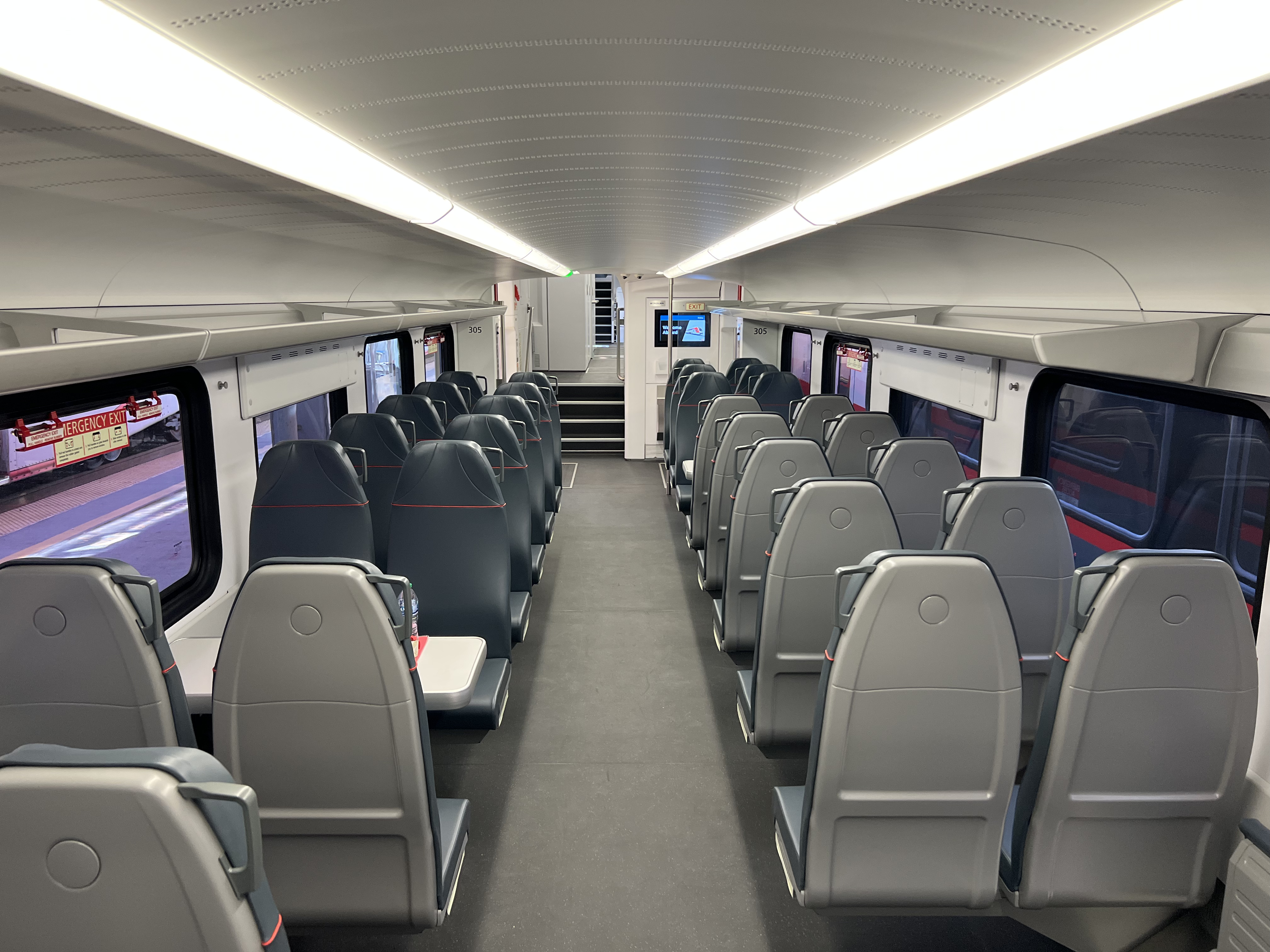 Interior of KISS electric train by Stadler for Caltrain. Source: Caltrain
Interior of KISS electric train by Stadler for Caltrain. Source: Caltrain
The contract for the delivery of 16 such trains for $551 mln USD was signed in 2016. Initially, it was assumed that the trains would be six-car, but the possibility of increasing the composition by one or two cars was mentioned. In addition, the contract included an option worth $385 mln for another 96 railcars. At the end of 2018, Caltrain took advantage of its part and placed an order for 37 cars for $174.6 mln. The option allowed increasing the composition of trains ordered earlier to 7 cars and forming 3 more seven-car EMUs. Caltrain is currently negotiating with Stadler to exercise the rest of the option. The purchase of hybrid trains (battery or hydrogen + catenary) is being considered.
The procurement of the KISS electric trains is only part of a larger Caltrain project to electrify the San Francisco-San Jose line. Its initial cost was almost $2 bln, but a necessity to increase the budget by another $410 mln was found during its implementation. In addition, the initial launch dates for the line were scheduled for 2022. However, in June 2021, the operator announced that the launch was postponed until 2024. Caltrain explains the increase in the cost of the project and the postponement of the deadlines by the difficulties with installing signaling systems and the Covid-19 pandemic, which has seriously disrupted supply chains.
This also affected the deliveries of rolling stock. Thus, as to the contract, the first train was planned to be supplied to Caltrain in August 2019 and put into operation in 2020. However, the assembly of the first two trains was only completed in July 2020. A year later, in June 2021, it was reported that 70 bodies had been sent from the Stadler plant in Switzerland to the United States and 55 of them were already at the Salt Lake City site. The date of the contract completion was not announced, but it was reported about plans to deliver the 14th train to the customer in August 2023.
The trials of KISS trains for Caltrain were divided into three stages. The first one took place on a 1 km long test section of the Stadler plant in Salt Lake City. Static tests of the train were carried out there, as well as acceleration and braking at low speeds were checked. The functioning of the doors and on-board systems, including the air conditioning and lighting system, was also tested.
Dynamic testing of the KISS EMU for Caltrain at the Transportation Technology Center in Pueblo. Source: Aaron Miller/youtube
The trains were then sent to the Transportation Technology Center (TTCI) in Pueblo for 8 months of running trials for approval to operate. In particular, the trains were able to reach a speed of 185 km/h as part of the tests. Acceleration and braking were also tested, but at higher speeds than previously.
The last stage of testing will take place before commissioning in 2024. According to Caltrain, its main goal will be to check the condition of the infrastructure, not the rolling stock.



